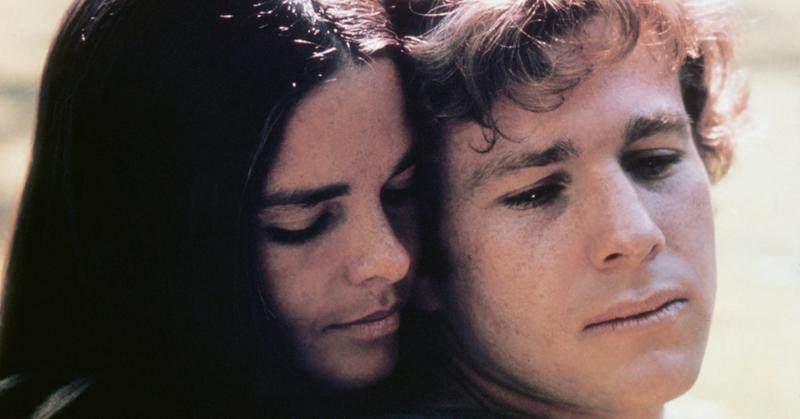'Love Means Never Having To Say You’re Sorry:' What Does The 'Love Story' Line Mean?
By | March 6, 2019

It's one of the most-quoted movie lines of all time: "Love means never having to say you’re sorry." Love Story, a 1970 film based on a novel of the same name by Erich Segal, is the source, and while the quote is pretty clear on what love means (hint: never having to say you're sorry), people have often struggled to figure out what the quote as a whole means.
For instance: Does love mean never having to say you're sorry because lovers never (or should never) disappoint each other? Or is it because apologies are unnecessary when two people love each other? What is so special about this line? And why is it so annoying?
It may be annoying simply because it sounds like one person condescendingly telling another person what love means. And while it may be someone's idea of a philosophically beautiful definition of love, it also sounds kind of like a pointless rule or a scold. Clearly Person A feels they need to say they're sorry, and Person B is correcting them.
And what is this dread of having to say you're sorry? Don't people often say they're sorry for good reasons? What sort of person has the hubris to go through life feeling they need never apologize?
The award-winning film Love Story starred Ali MacGraw and Ryan O’Neal, and it was a real heart-wrencher. The quote occurs twice in the film -- the first time comes when Oliver Barrett (Ryan O’Neal) gets upset when he can’t find Jennifer Cavalleri (Ali MacGraw), so he apologizes -- but she tells him “Love means never having to say you’re sorry.” In the second scene, this time it was Oliver who repeated the quote to his father after his father’s response of “I’m sorry,” when he learned of Jenny’s death.
Oh, spoiler alert: It's one of those death movies. In fact, the second-most-famous line is "What do you say about a 25-year-old girl who died?" Well, we don't know what you say about that, but we're pretty sure what you don't say. Don't you dare say "I'm sorry."
What Happens In The Movie

In the movie Love Story, Harvard student Oliver Barrett meets a working-class classical music student named Jenny Cavalleri, who is attending Radcliffe College. Even though they are from two totally different worlds, they meet and fall in love. Oliver proposes to her and she accepts, but when Oliver tells his parents, they are not at all happy about it. In fact, his father threatens to cut him off financially if he marries her. Despite the odds against them, they marry anyway and even though they are struggling with finances, they are quite happy together and want to start a family. Unfortunately, after failed attempts to conceive, they find out through various tests performed that she is not only unable to conceive but that she is actually dying. Oliver is told first and he attempts to hold back the truth from her, but she later finds out from the doctor.
What The Line Might Mean In The Context Of The Film

From the movie, the meaning of the quote “Love means never having to say you’re sorry” could be defined as such when a person truly loves someone, then no matter what they go through or what their social status is, everything is fine, so there is no reason to feel sorry about anything. Whether it is sickness, lack of money, or death, if two people love each other, there is no reason for regrets. Oliver apparently learned this from Jenny which is why he re-quoted it to his father towards the end of the movie.
The Line That Was Bigger Than The Film

People often have trouble remembering the original source of the line because it's been reused and parodied many times. The quote took off after the movie and many other shows, groups, and movies picked it up and used it as well. In 1972, the group The Whispers put out an album named after the movie with a song on it called “Can’t Help But Love You.” The first line of the song is “Love means never having to say you’re sorry.”
Just two years after Love Story's release, Ryan O'Neal co-starred with Barbra Streisand in a comedy called What’s Up, Doc? (1972). Streisand says the line to O'Neal -- and he shoots back, “That’s the dumbest thing I’ve ever heard.”

Then there were those who only used a portion of the quote or turned it around. Because the line is such an unambiguous rule about what love means, it's easily twisted for comedic effect. The structure of the sentence is so well known that all you need do is say "Love means never having to..." end it however you like, it's a joke.

Whether used seriously or in jest, "Love means never having to say you're sorry" wil always be with us, it seems Perhaps In order to understand the true meaning of it, one must understand what love truly means. If a person really loves someone, they do not require them to say “I’m sorry” because they do not need that self-gratification and they are not judging them. Did the author of the novel Love Story have this deep meaning in mind when he wrote it into his book?
